Este año los ESDA DESIS SD DAYS se celebraron por tercera vez en la ESDA en Zaragoza, España.
Cabe destacar que, por primer año esta reunión in situ está integrada dentro de la trayectoria del nuevo Cluster de DESIS sobre «Práctica y educación en el cambio del diseño social desde los márgenes». Fundado por nuestro ESDA DESISD Lab y Francesco Mazzarella (UAL). El Cluster celebra otras reuniones virtuales durante el año, siempre abiertas a toda la comunidad DESIS.
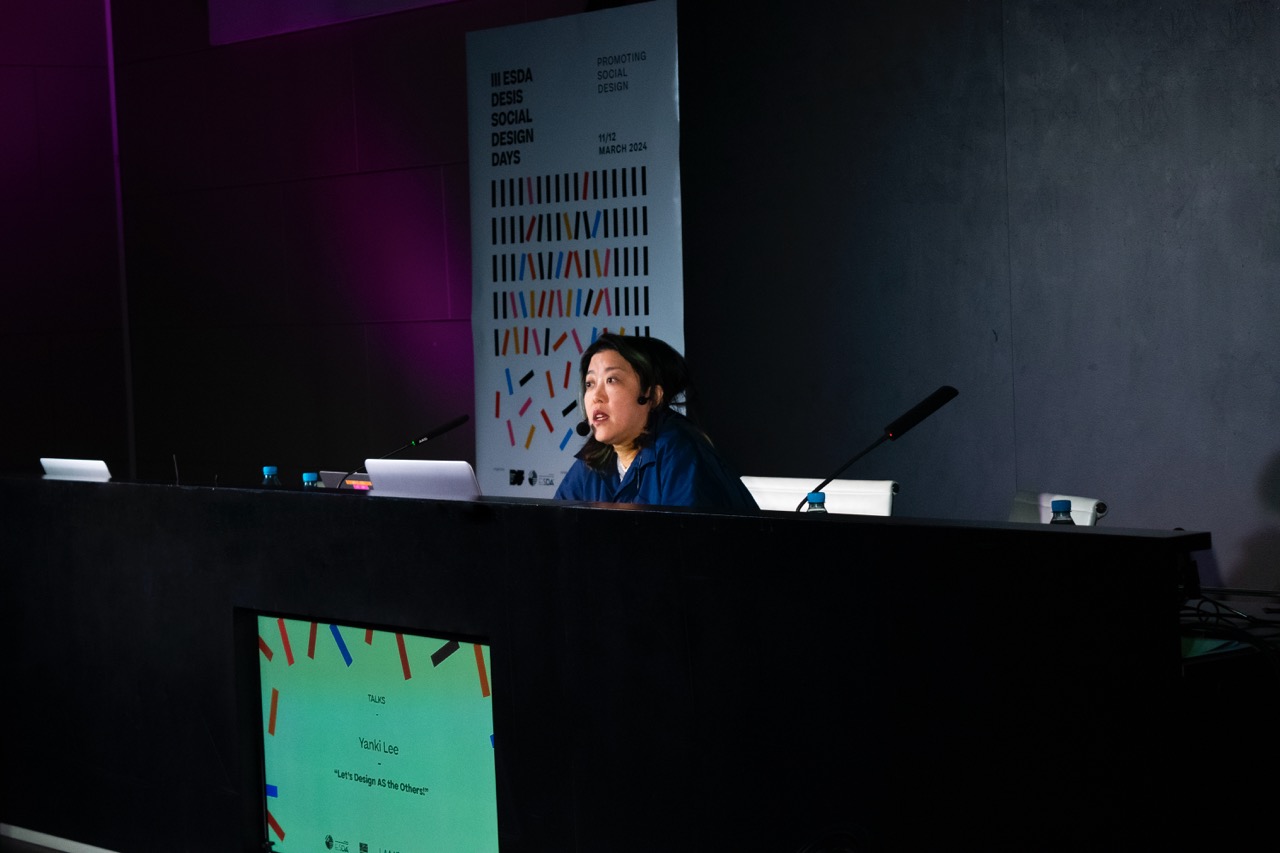
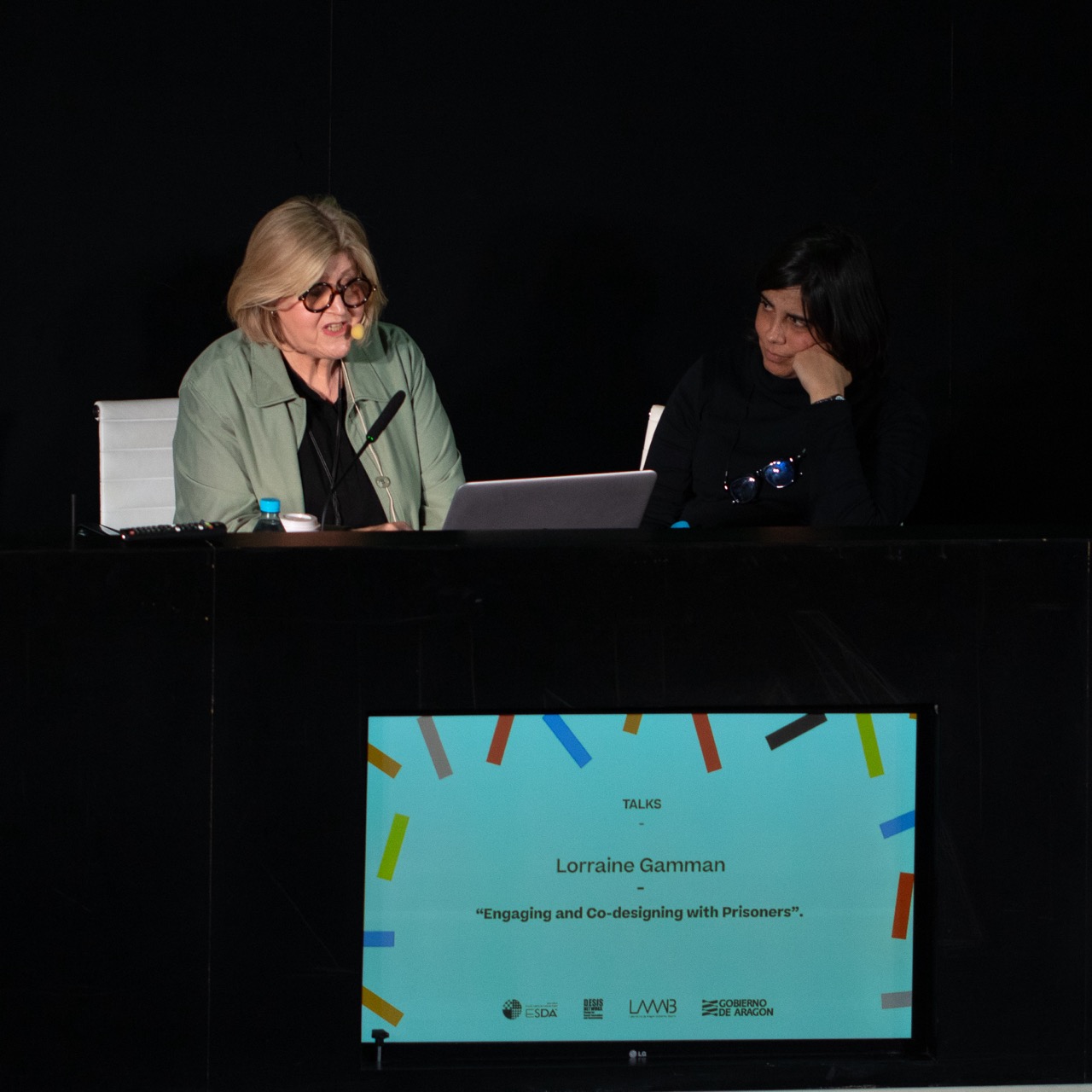
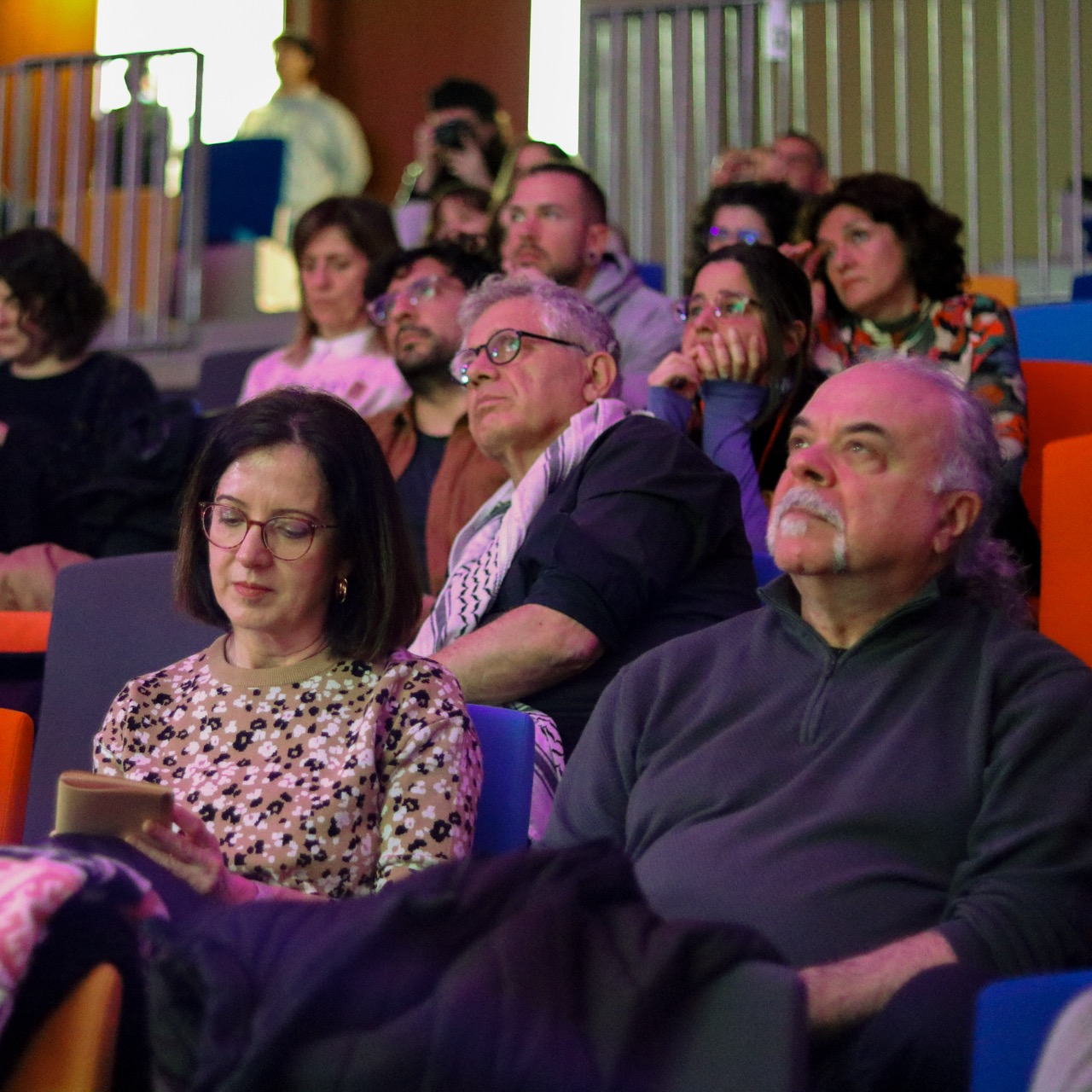
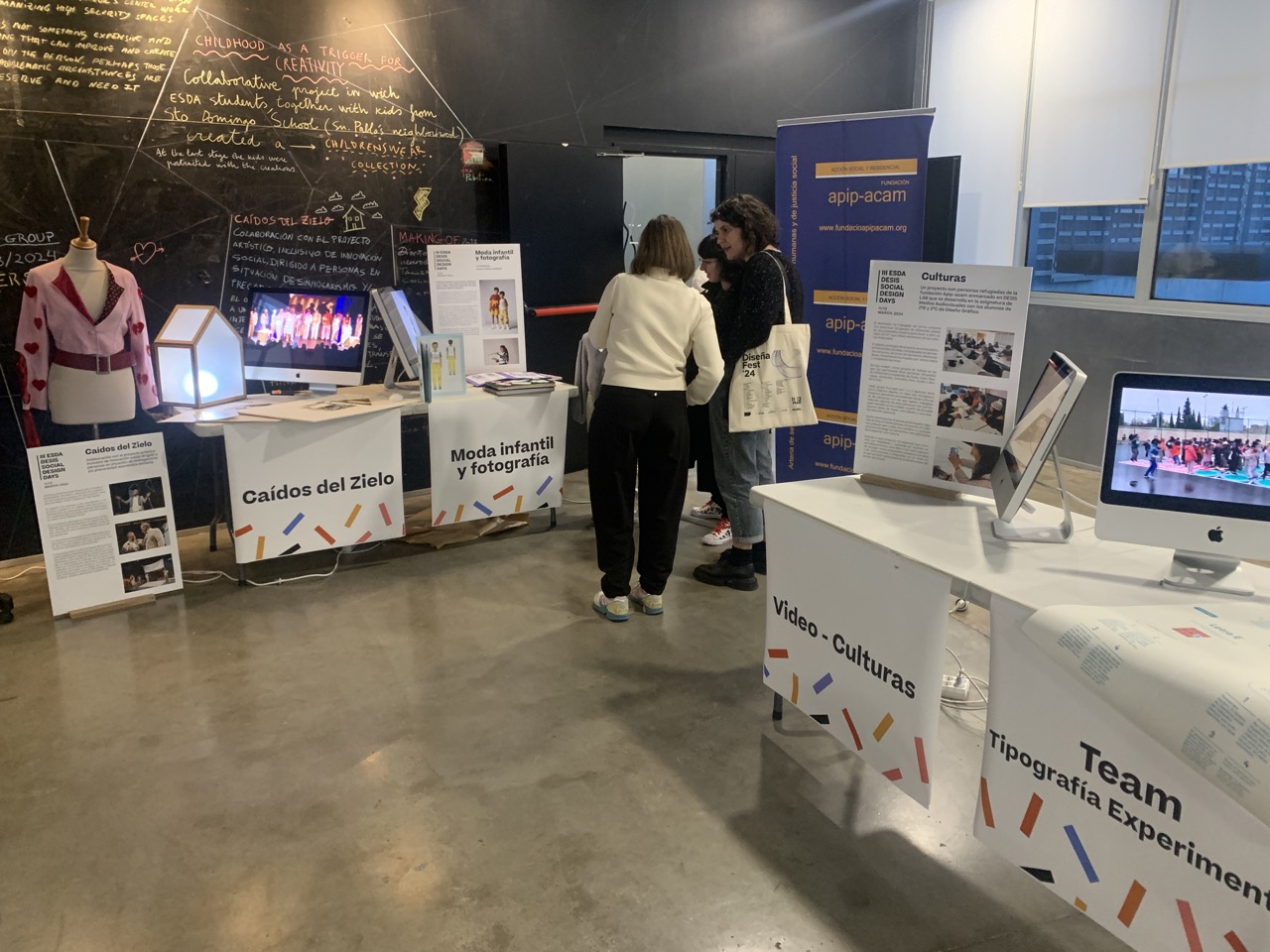
El evento se centró en la Educación en el diseño social, y 37 de los 70 profesores participaron. Tuvimos el honor de contar con Lorraine Gamman (DESIS y Oficina de Diseño contra la Delincuencia del CSM, UAL), Yanki Lee (Enable Foundation, Hong Kong, y Linnaeus University), Francesco Mazzarella (Center for Sustainable Fashion, London College of Fashion, UAL), Nicos Souleles (Art+Design: elearning lab – Design for Social Change, DESIS Cyprus University of Technology), Bori Fehér (SDN, Universidad MOME, Budapest), Susan Melsop (DESIS Lab Ohio State University) y Canan Akoglu (DESIS, Escuela de Diseño de Kolding, Dinamarca). Todo fue organizado por el ESDA DESIS Lab Core Team (Alberto Franco Jose Chávez y Cecilia Casas). Este año contamos con la colaboración del LAAAB, del Gobierno Abierto de Aragón. Y con la actuación estelar de Muralla «Urban Music», un broche de oro para las jornadas.
En primer lugar, tuvimos una bienvenida grabada por Teresa Franqueira y una significativa reflexión de Ezio Manzini sobre la importancia del papel de hacer innovación social también desde los márgenes. A continuación, tuvimos charlas, talleres, una exposición de diseño social con el trabajo de los estudiantes del último trimestre, y un panel final.
Emergieron varias perspectivas en torno al mismo tema: la educación en diseño social. Cada uno aportó su punto de vista y fue una experiencia muy enriquecedora.
Los temas más candentes fueron:
- La empatía y cómo conseguirla (la importancia de la escucha activa)
- Herramientas y métodos para diferentes aspectos de la educación en diseño social.
- El camino a través: Diseñar para la gente…Diseñar con la gente…Diseñar por las personas… Diseñar como los demás.
- Cómo integrar los ODS 2030 en los planes de estudios de diseño como forma de empezar.
- Surgieron nuevas ideas relacionadas con el fomento de la confianza y el compromiso de los participantes.
También se plantearon cuestiones no resueltas, como: la importancia de comunicar el contexto a los estudiantes para evitar el «parachuting» y las actitudes colonizadoras, o cuál será la trayectoria profesional de un estudiante que utilice los conocimientos de su especialidad para hacer diseño con un impacto social positivo.
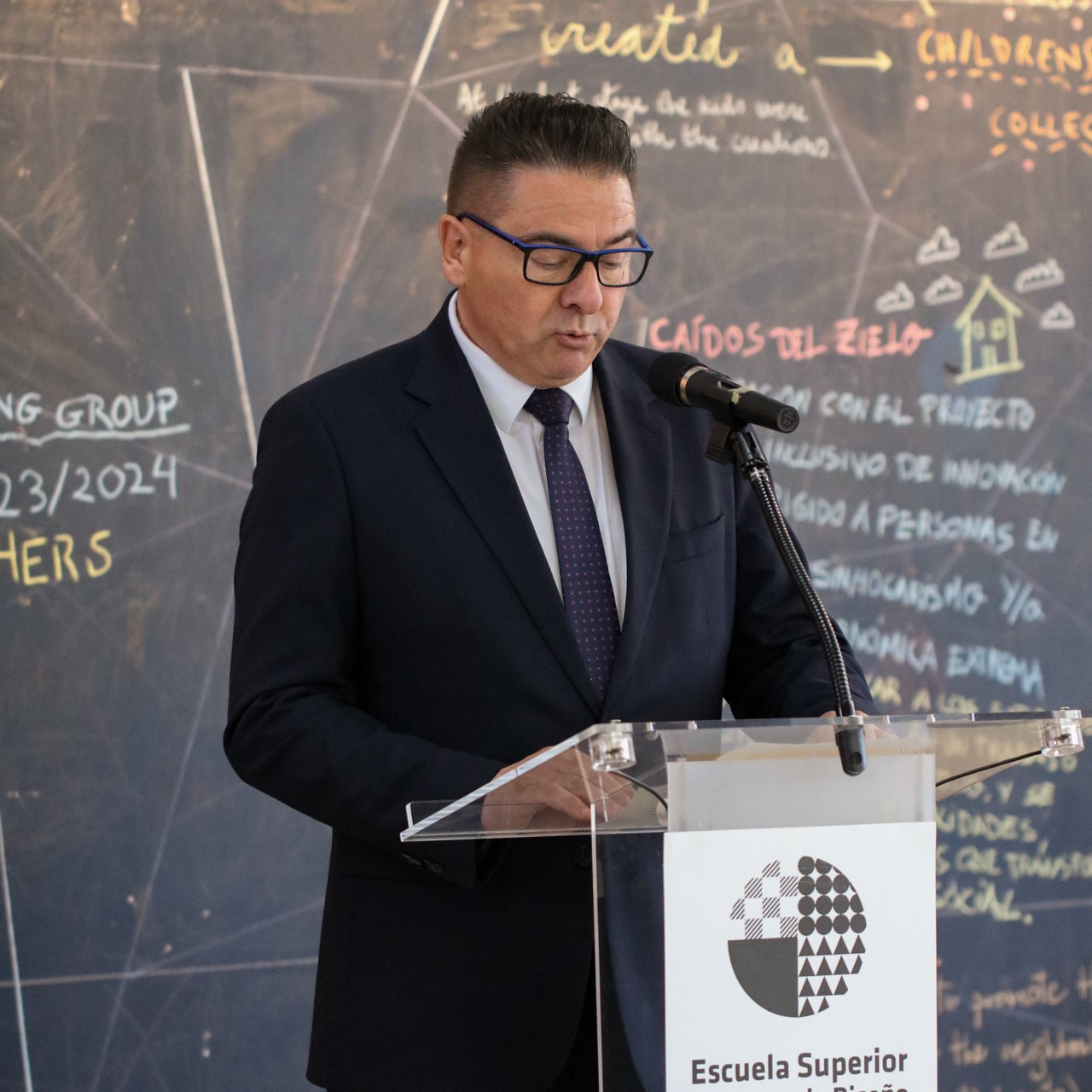
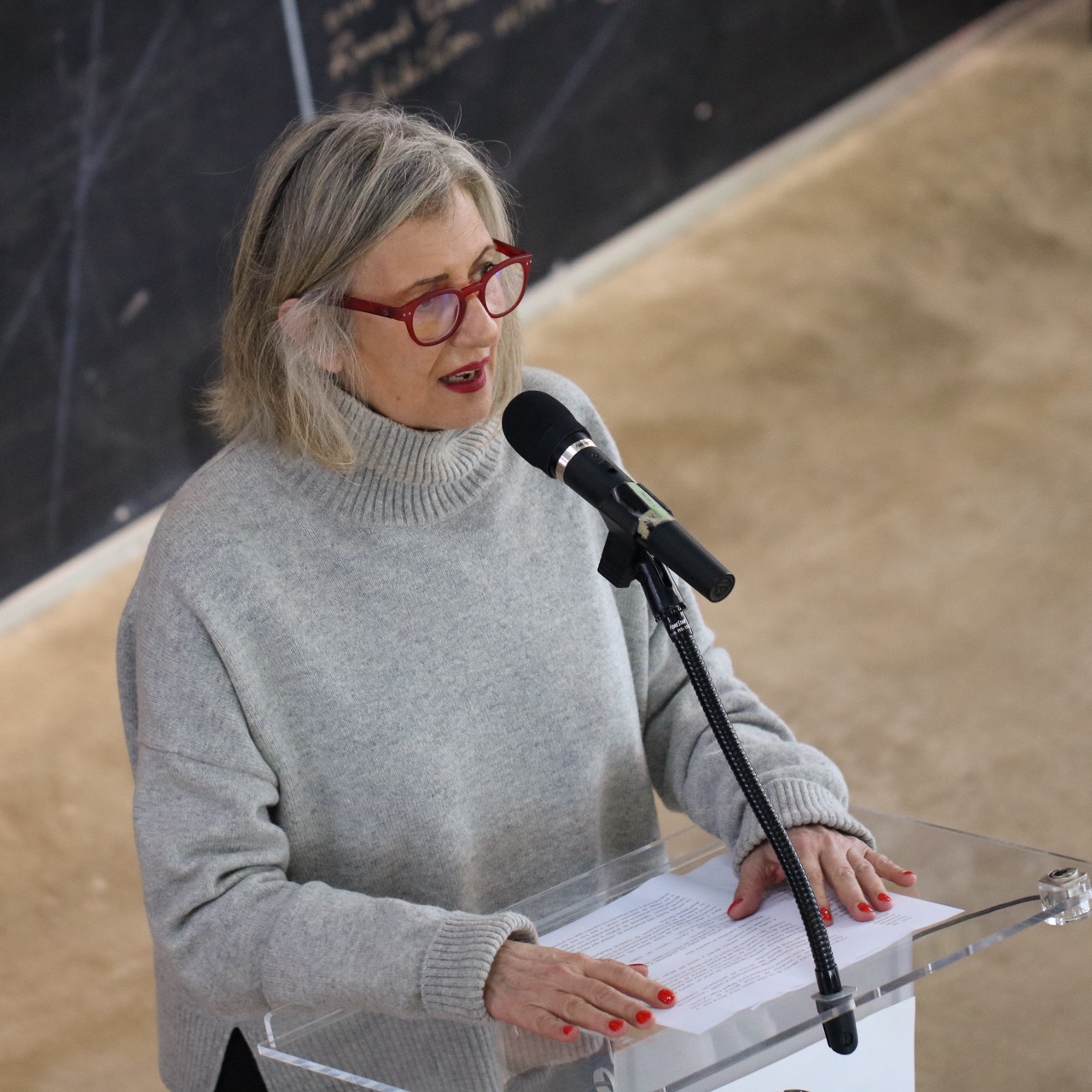
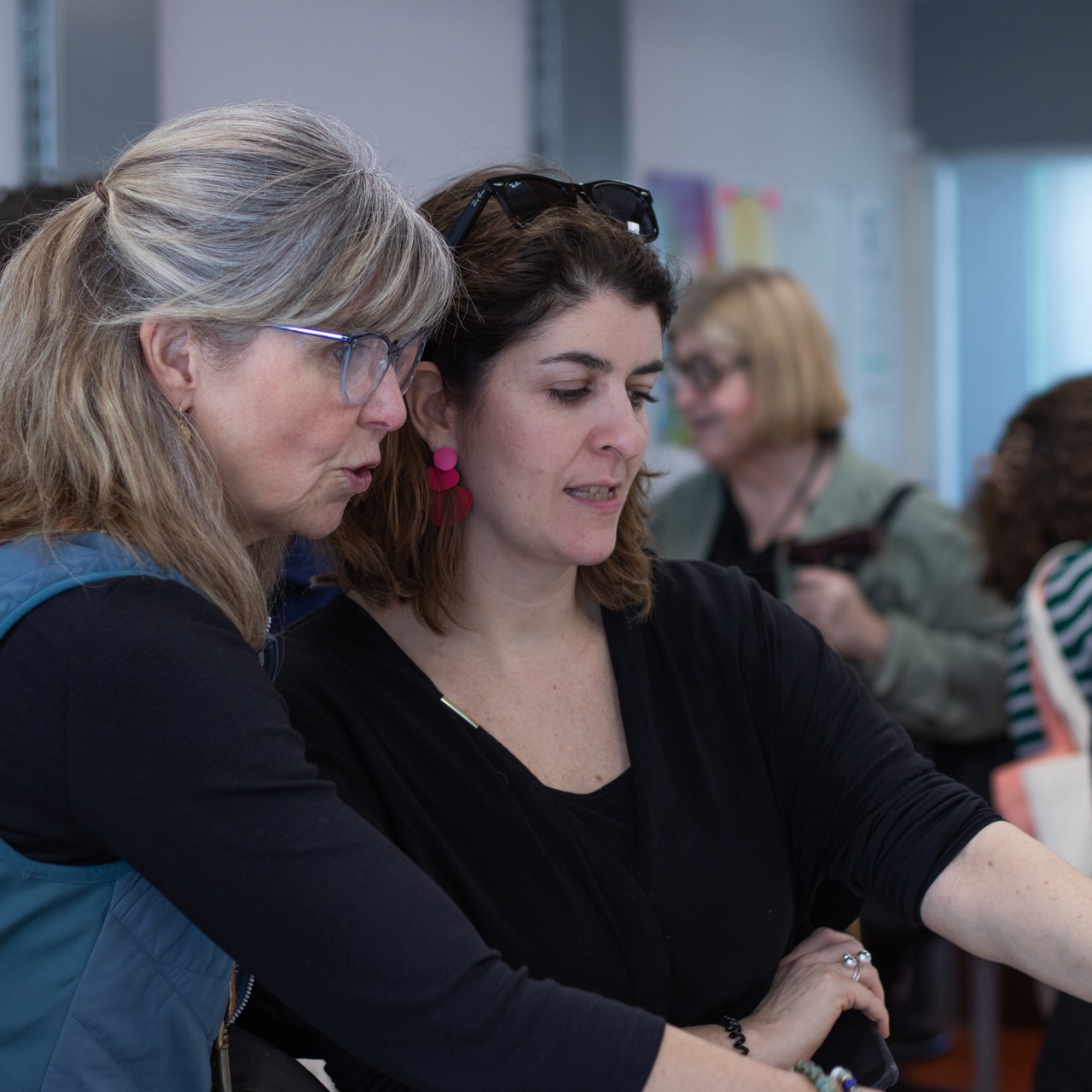
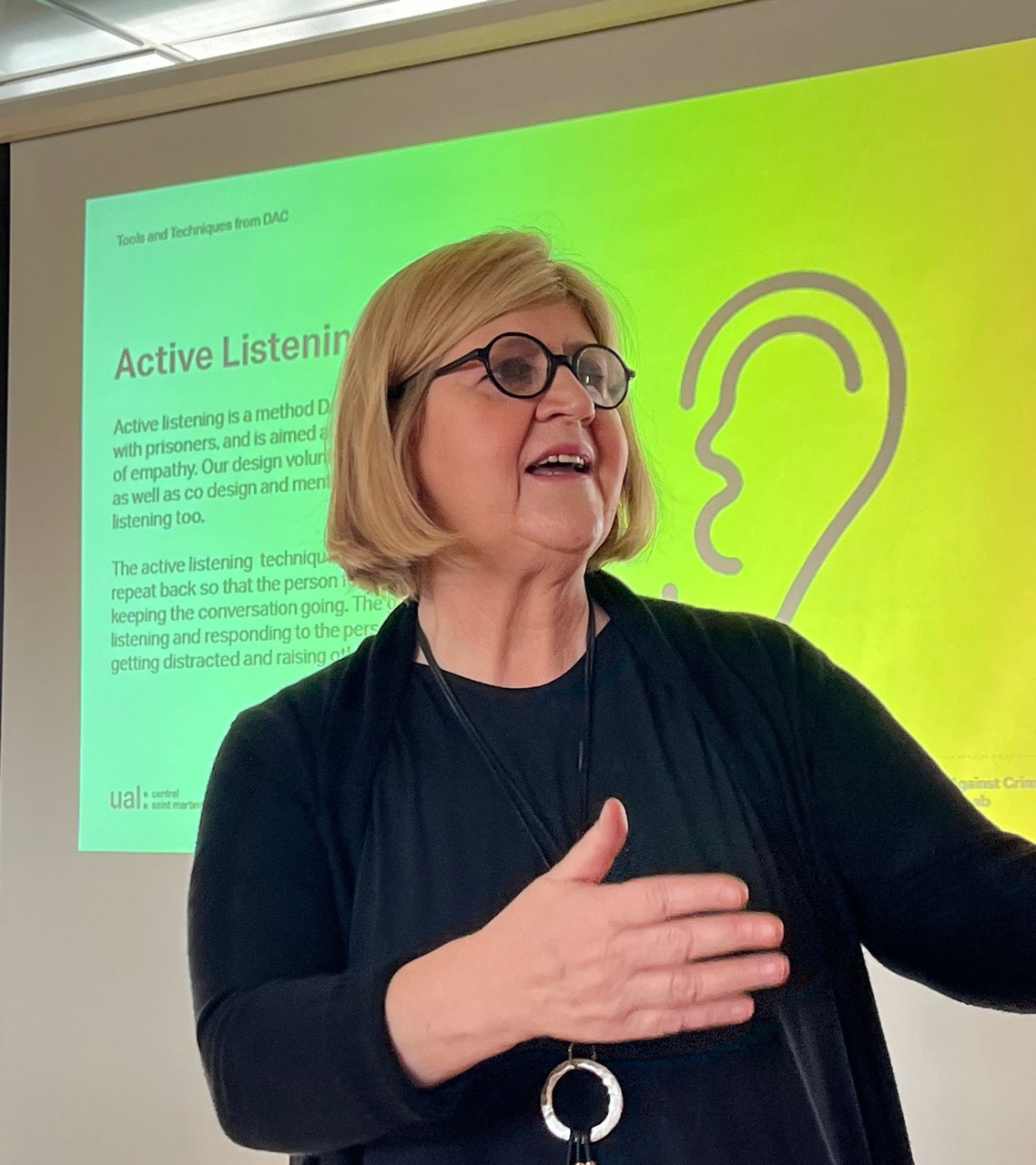

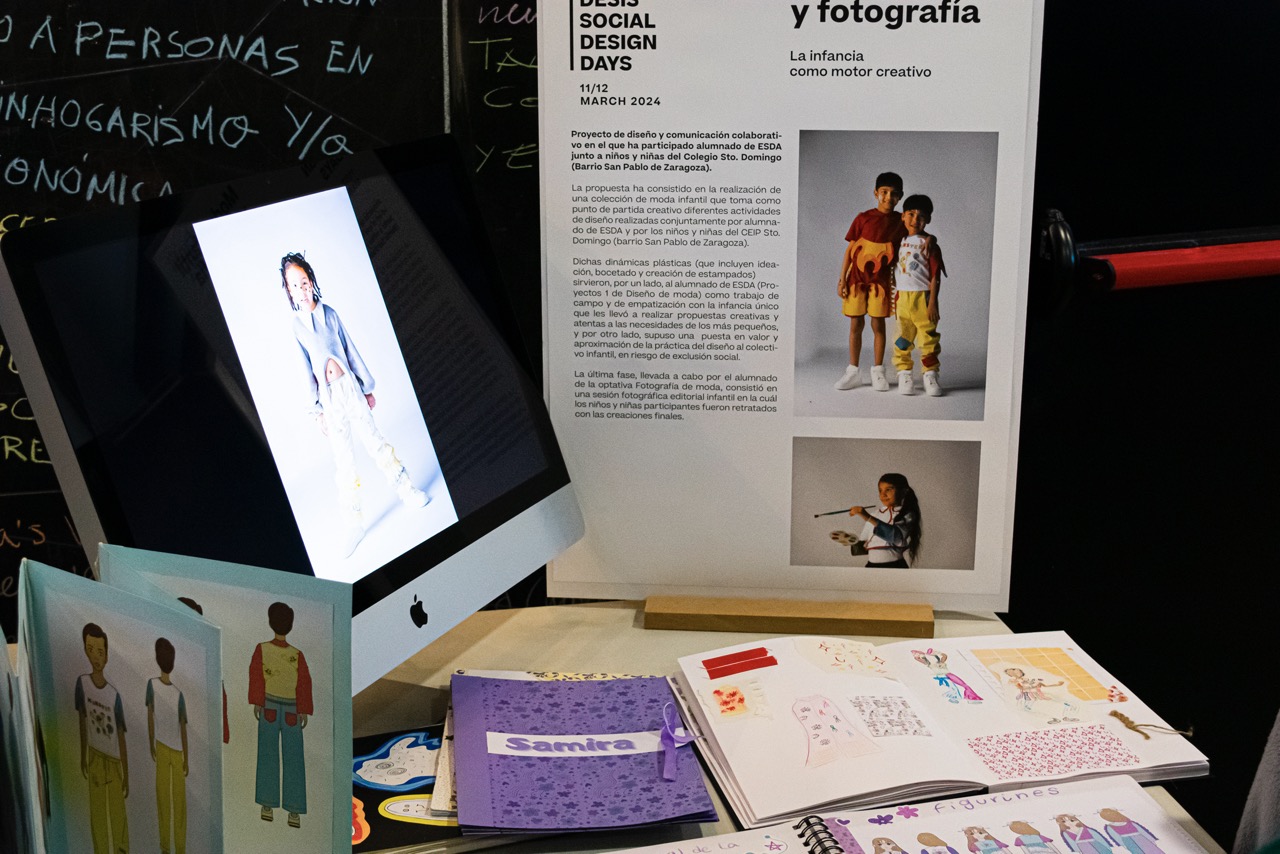
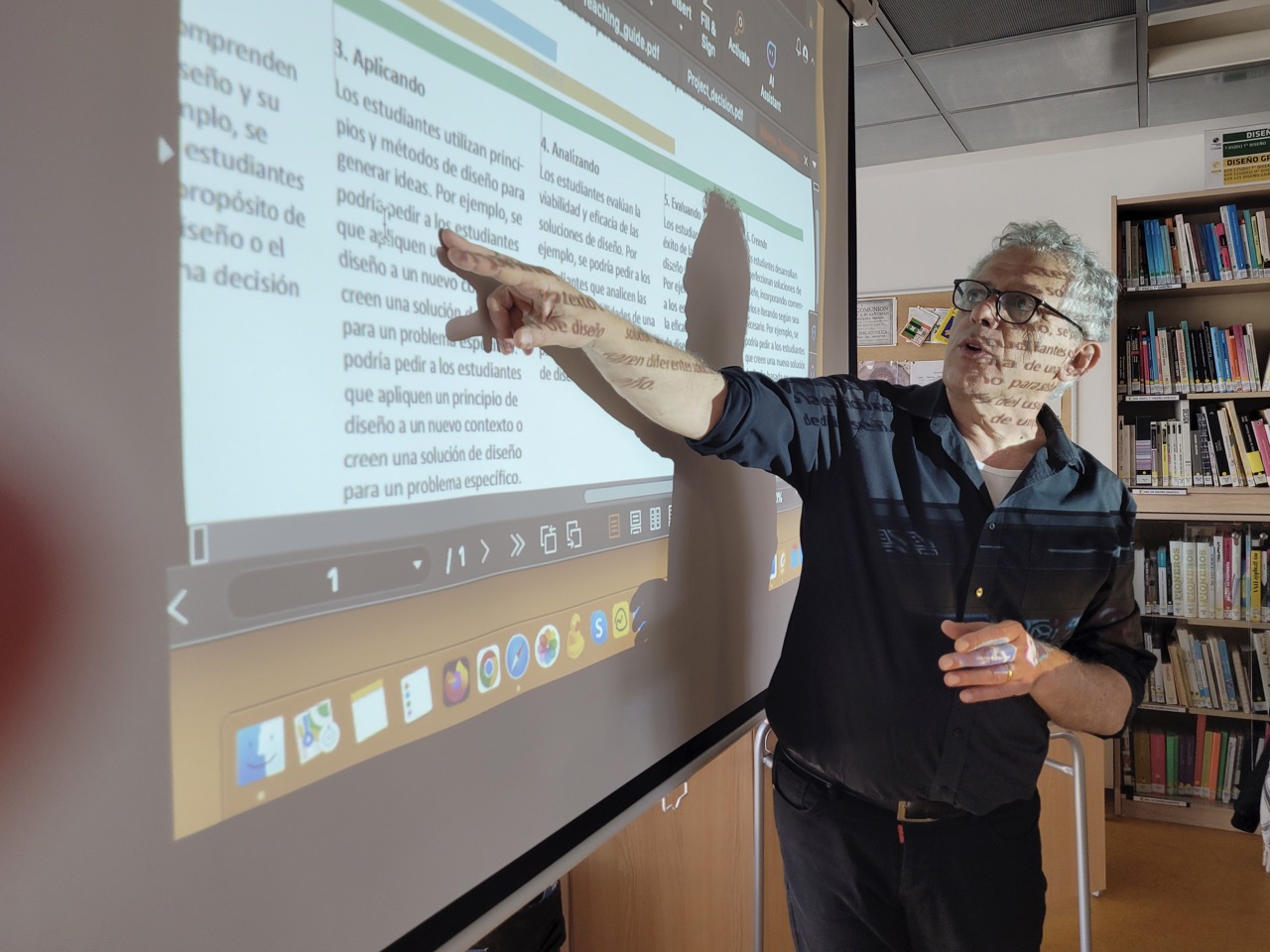
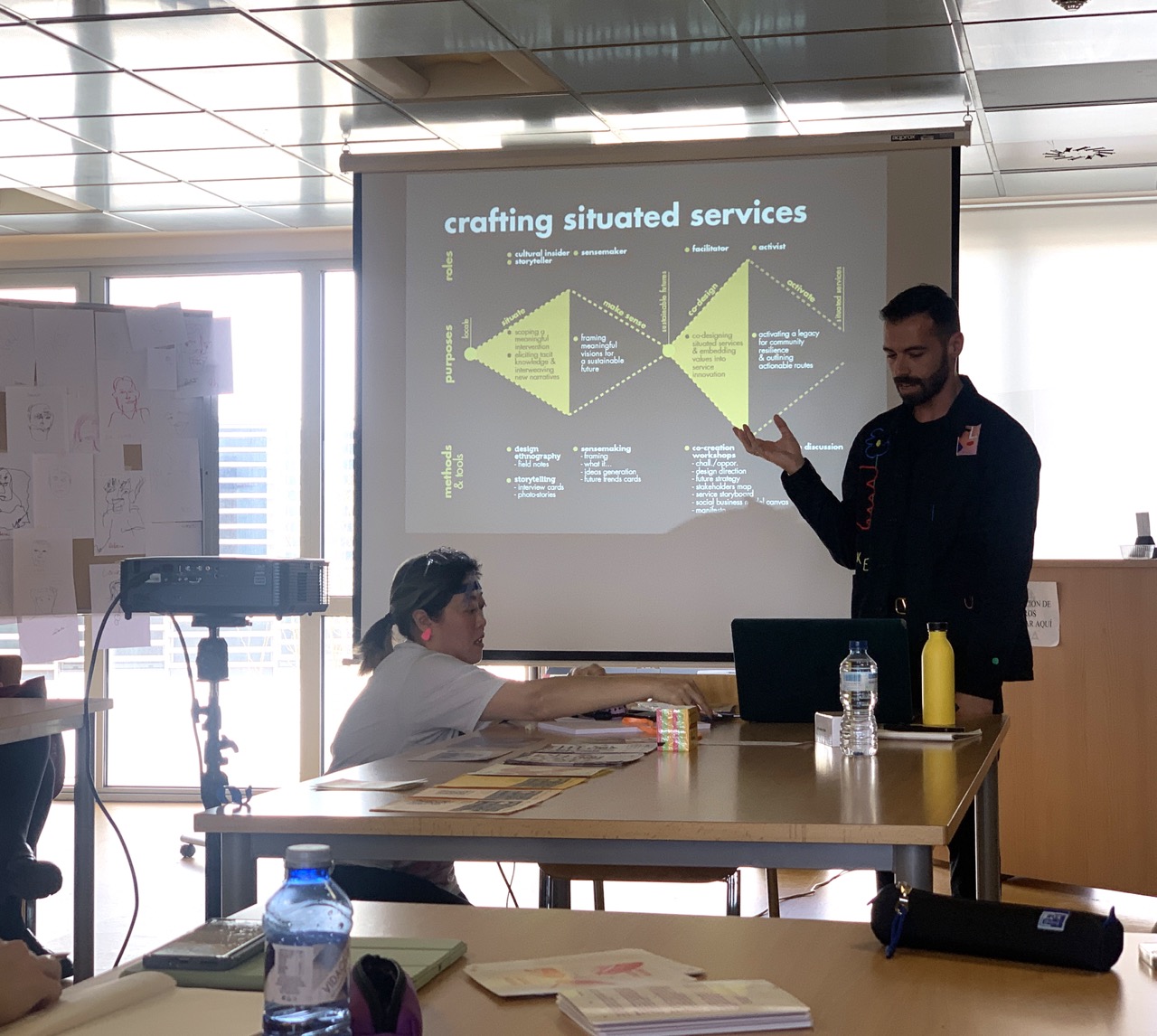
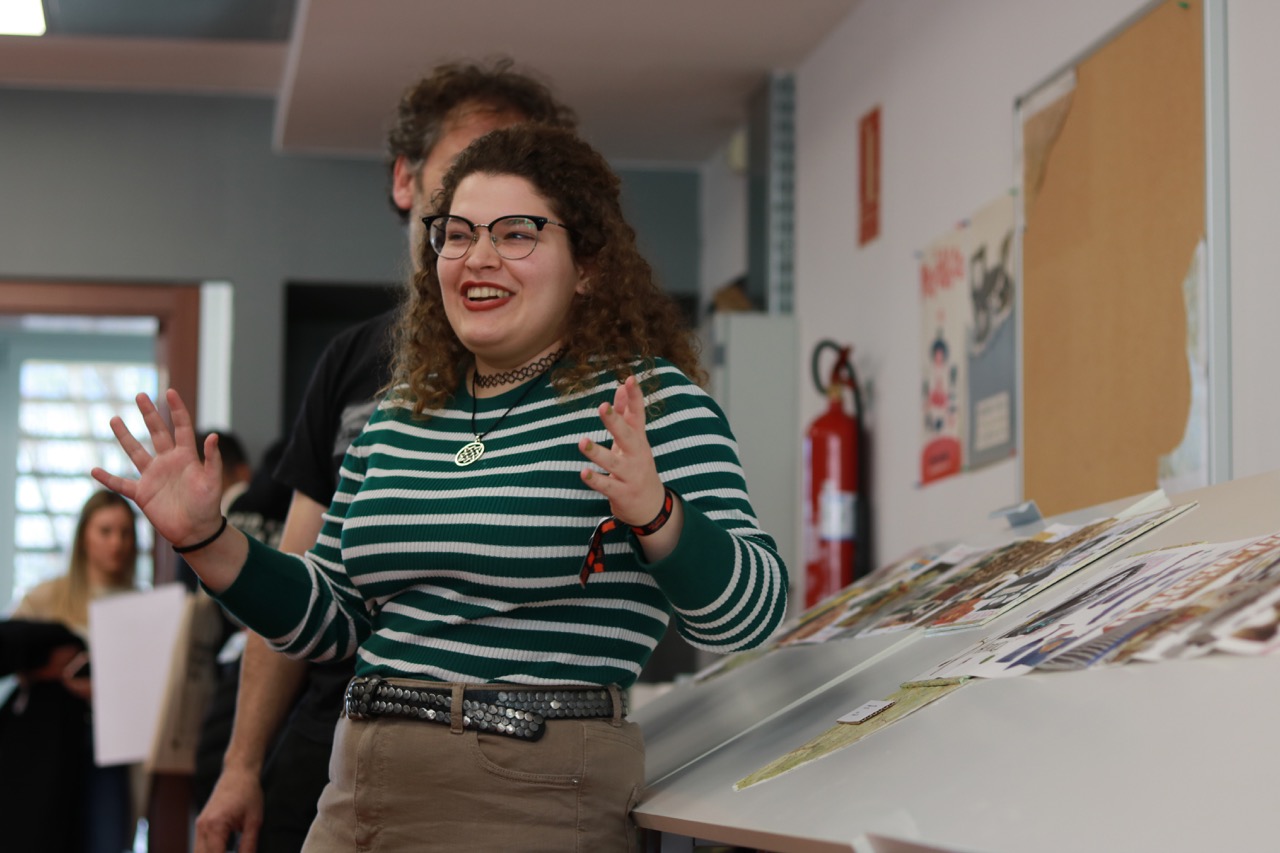
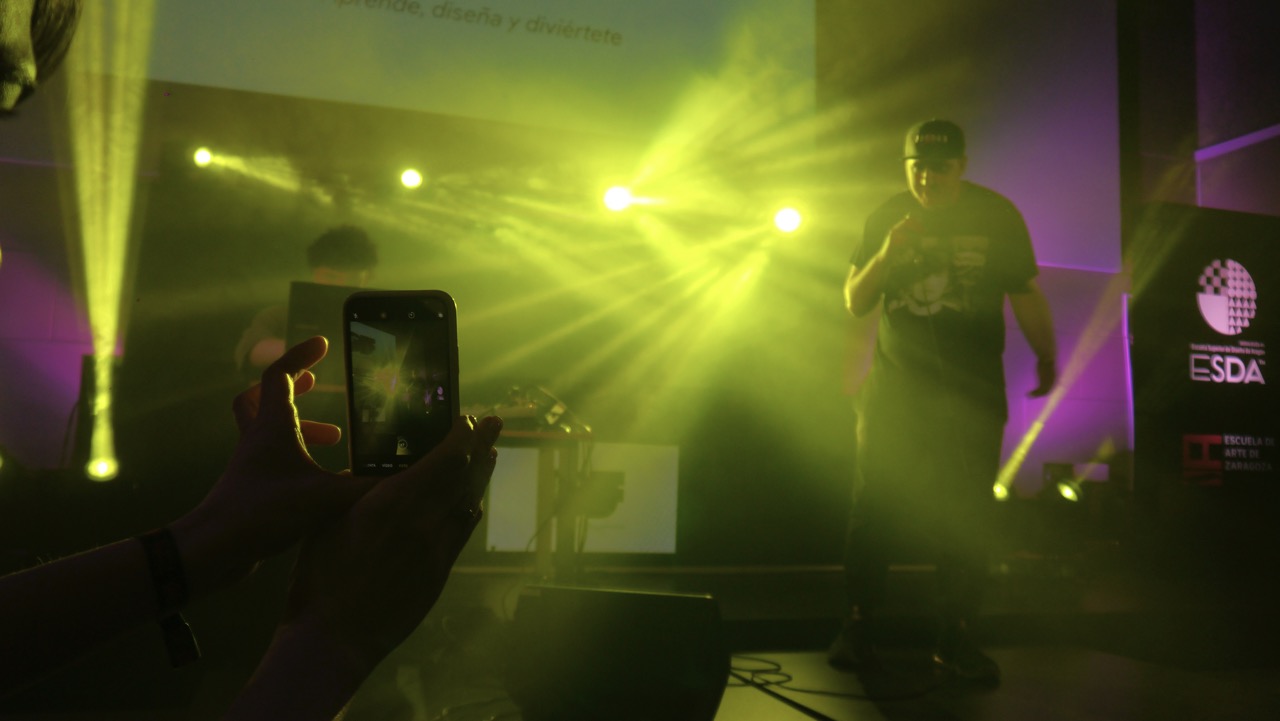
Gracias a todos los que lo hicisteis posible, que sois una legión.
Esperamos con impaciencia la próxima reunión online del Cluster, que se anunciará en breve.
Si estás interesado en asistir y aún no estás en la lista de correo, háznoslo saber: Cecilia Casas Romero. ccasas@esda.es
ESDA DESIS Lab
Fotos por: Lucía Rodríguez, Pablo Calvo, Ismael Larraz y Andrés Jarabo.
DESIS CLUSTER on-site meeting at III ESDA DESIS Social Design Days: Education on Social Design from the Margins
This year the ESDA DESIS SD DAYS took place for the third time at the ESDA in Zaragoza, Spain. It is remarkably that, for the first year, this on-site meeting is embedded in the work of the new DESIS Cluster on «Practice and Education in Social Design Change from the Margins». The cluster celebrates other virtual meetings during the year, always open to the whole DESIS community. This year at the event , the focus was on Education in social design, and 37 out of 70 teachers participated.
This year we were honoured to have Lorraine Gamman (DESIS and Design Against Crime Office at CSM, UAL), Yanki Lee (Enable Foundation, Hong Kong, and Linnaeus University), Francesco Mazzarella (Center for Sustainable Fashion, London College of Fashion, UAL), Nicos Souleles (Art+Design: elearning lab – Design for social change. DESIS Cyprus University of Technology), Bori Fehér (Social Design Network, MOME University, Budapest), Susan Melsop (DESIS Lab Ohio State University) and Canan Akoglu (DESIS, Kolding Design School, Denmark). Everything was organised by the ESDA DESIS Lab Core Team (Alberto Franco, Jose Chávez and Cecilia Casas).
First, we had a recorded welcome by Teresa Franqueira and a meaningful reflection by Ezio Manzini on the importance of the role of doing social innovation also from those who are «on the margins». Then, we had talks, workshops, a social design exhibition with the students’ work from the last term, and a final panel.
We had several perspectives wrapped around the same theme: Education in Social Design. Each of us brought a different point of view and it was a really enriching experience.
This year the hottest topics were:
1.Tools and methods for different aspects of social design education
2.Empathy and how to achieve it (the importance of active listening)
3.The way across: Design for people…Design with people…Design by people…Design as others
4.Also, how to embed SDG 2030 in design curricula as a way to start.
5.New ideas emerged related to building trust and engagement of participants.
There were also unresolved issues that were also raised, such as:
- The importance of communicating the context to students to avoid ‘parachuting’ and colonising attitudes.
- What will be the career path of a student involved in or learning SD, if any?
We are looking forward to the next e-meeting of the Cluster, which will be announced soon!
If you are interested in attending and are not yet on the mailing list, let us know: Cecilia Casas Romero. ccasas@esda.es
ESDA DESIS Lab.
Créditos:
Fotos by Lucía Rodríguez, Pablo Calvo, Ismael Larraz y Andrés Jarabo.
